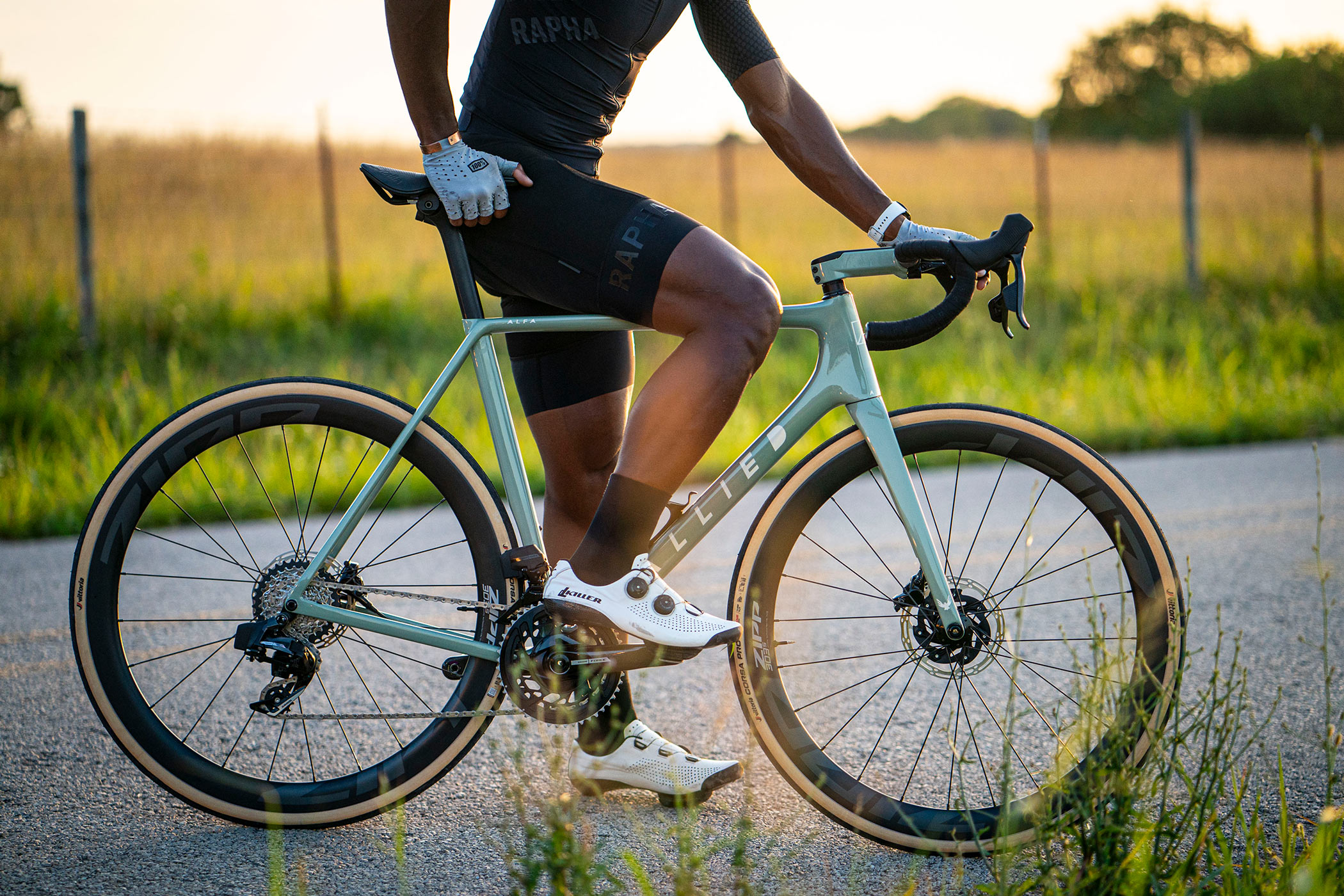Aiming to kill your (pavement) quiver with a balanced blend of comfort, stiffness, aerodynamics, and ride quality, the newest iteration of the Allied ALFA road bike says it hits all the right notes.
Quick background: The ALFA was Allied’s original model, debuting way back in 2017 with *gasp* rim brakes, making it certainly due for an update. They quickly followed that up with the Alfa All-Road model with more tire clearance (which was eventually rebadged as the Echo), and both bikes quickly got disc brakes that year.
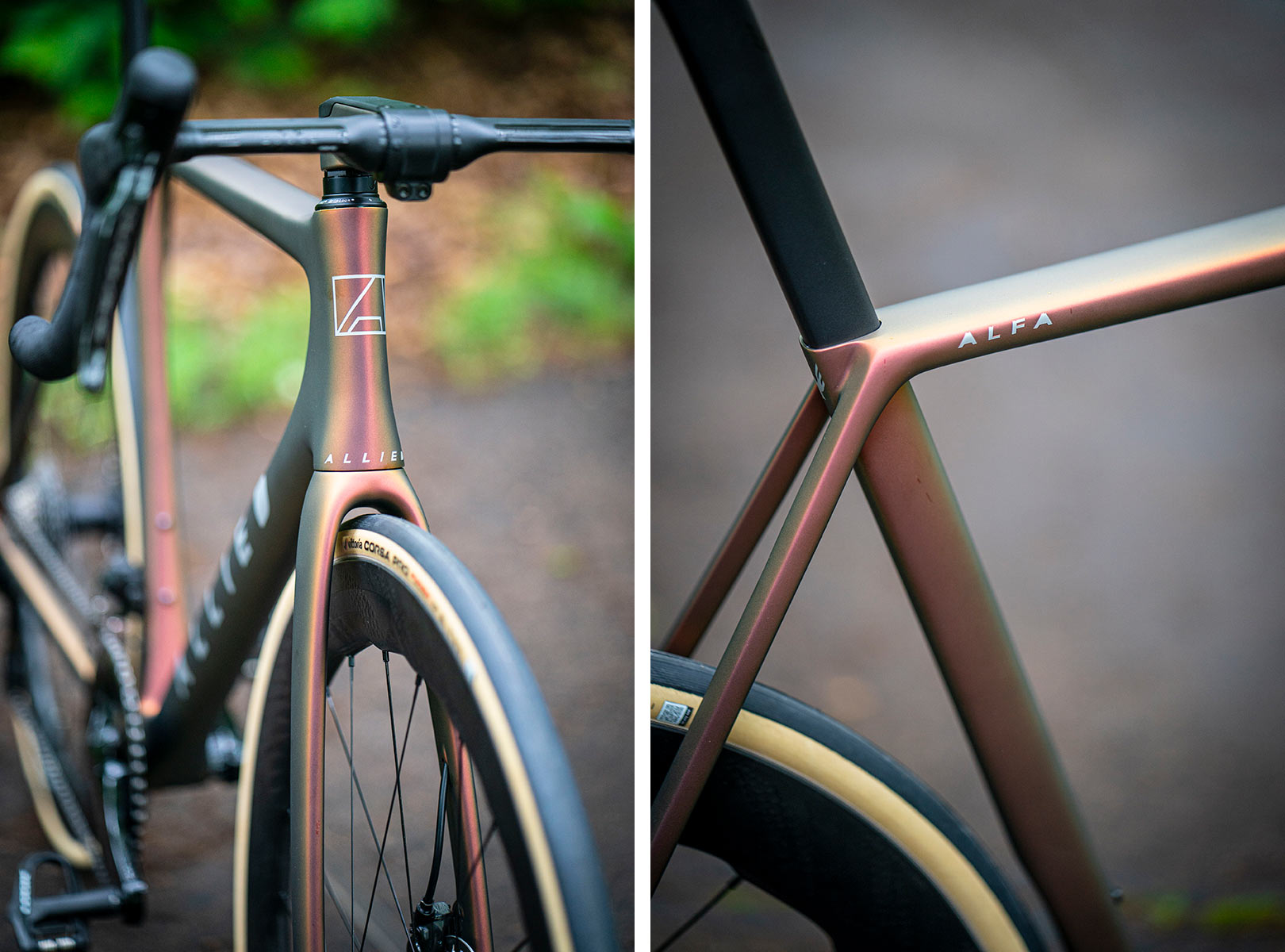
The new ALFA frame is a bit stiffer than before, using their “steering spine” layup and design of the fork, and they focused a lot of improving front end lateral stiffness. That comes from a different layup schedule, and also refined shaping and switched to a Mitsubishi MR60 carbon fiber, which they say is super expensive but has the best stiffness-to-weight ratio and is made in the USA and certified for aerospace use.
They call the handling “reactive, but not twitchy; fluid, but not sloppy.” It’s designed to be a race bike that can be ridden every day, for climbing, descending, and all things in between.
Those new shapes keep low-profile (smaller diameter) tubes, but give them a truncated NACA profile. They say the smaller diameter provides a smoother ride quality, and the shapes add “real world aerodynamics” in a variety of crosswind angles your likely to encounter on normal rides.
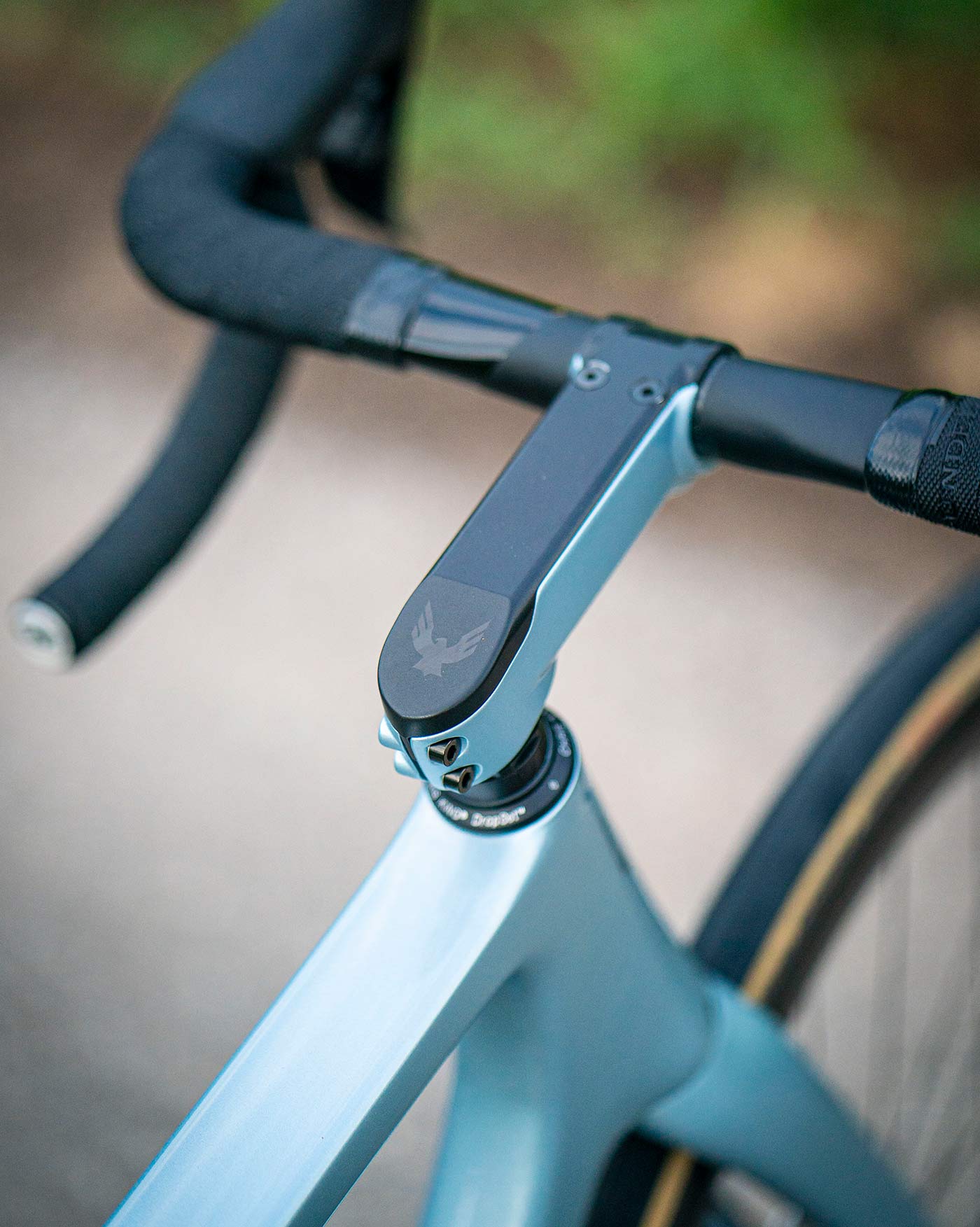
Unlike pretty much every other road bike that’s gone to an integrated internal routing system by using the Chris King Aeroset 3 headset (which runs the cables alongside the steerer tube), Allied feeds the brake lines through the stem and directly into the fork’s steerer, allowing them to use a smaller head tube profile and Chris King’s standard Dropset headset.
This requires use of their proprietary stem, but it means there’s no cables running through a hole in the upper headset cup, so it should do better at keeping moisture and muck out of your frame. They’ve been using this system on the Echo for a couple of years.
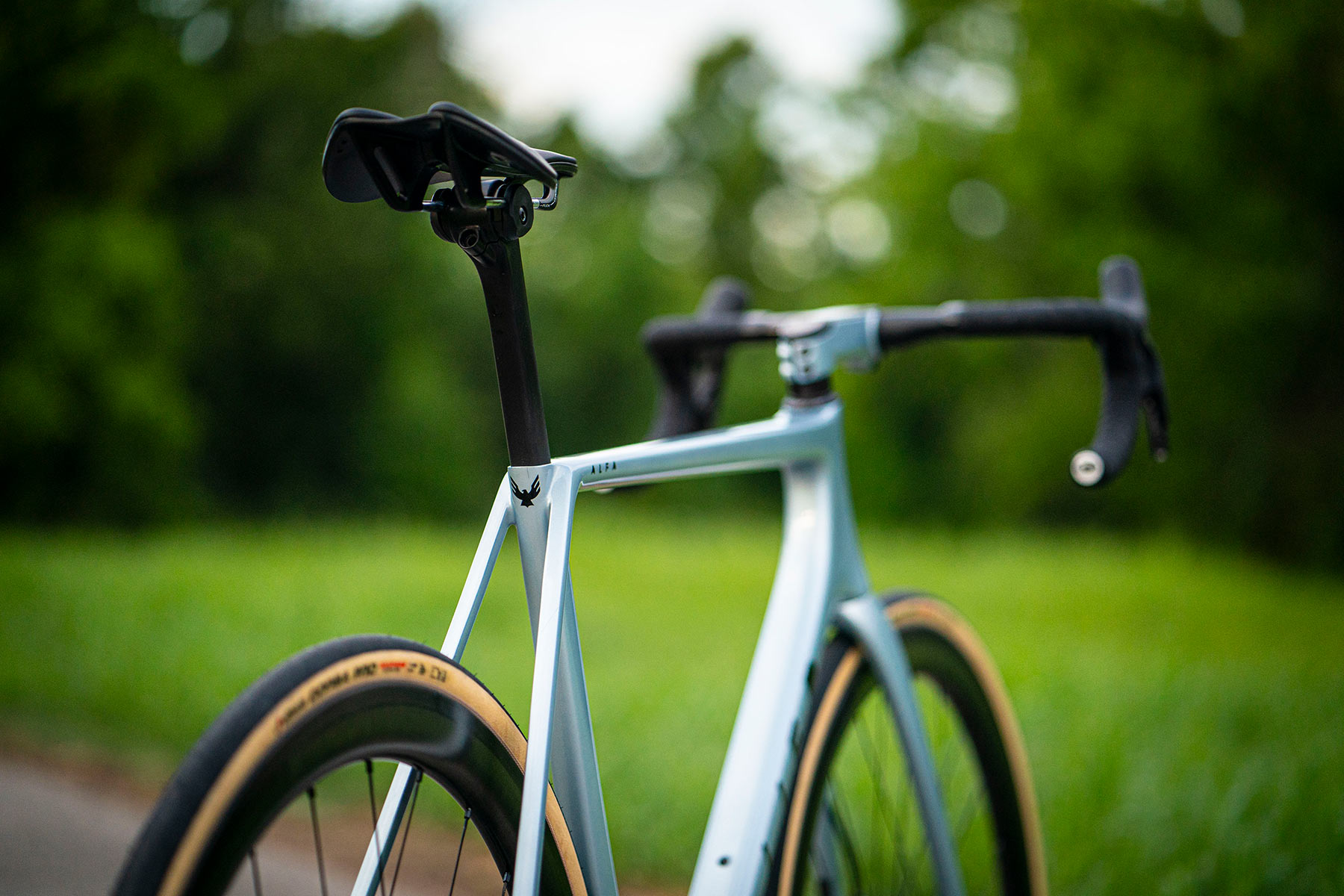
It also means there’s not really room for shift cables, so the bike is only compatible with electronic drivetrains. But it does keep a simple, classic threaded bottom bracket. Framesets include their stem, and their seatpost, which they make themselves, in house, including the hardware.
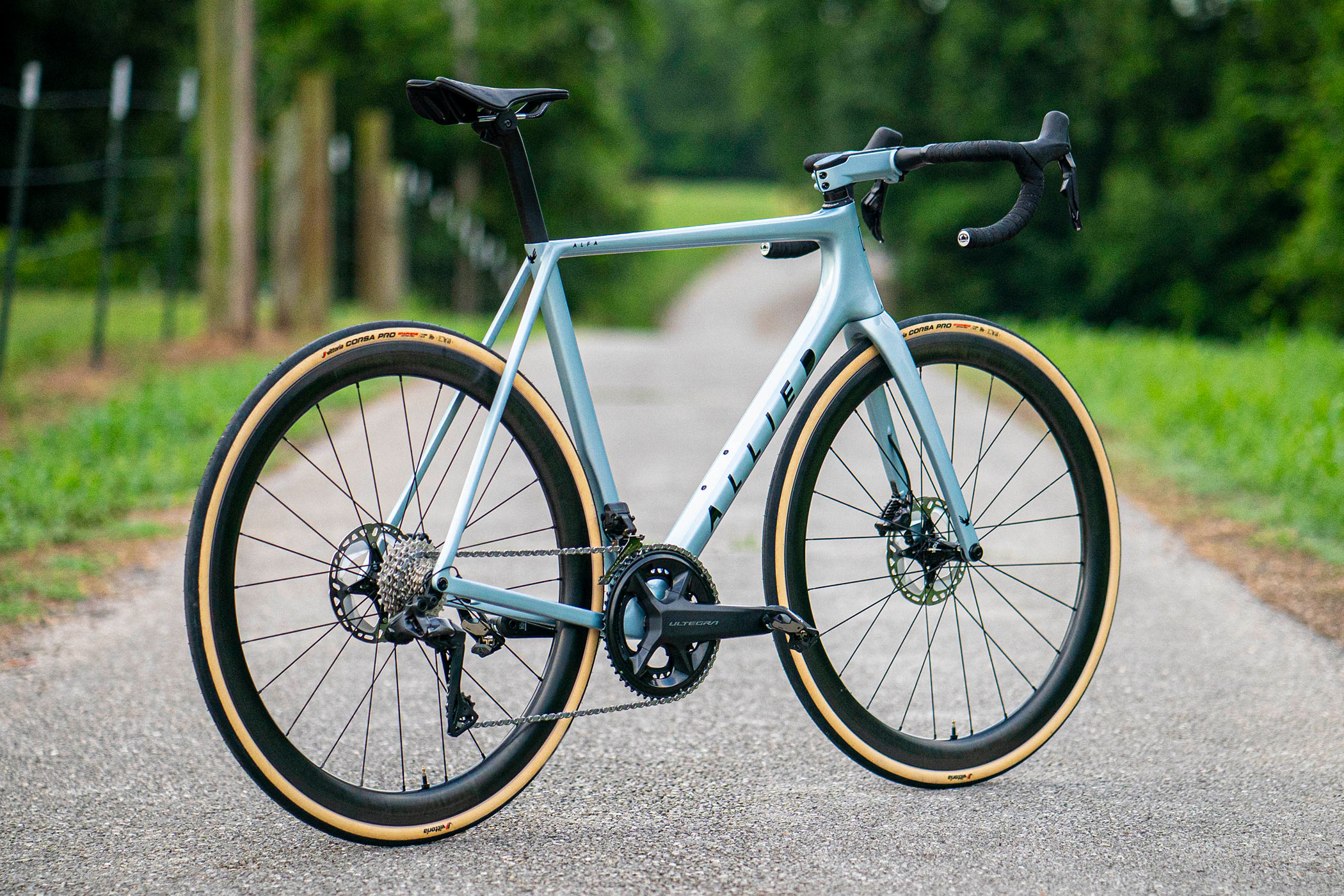
Tire clearance increases to for 32mm tires, and all complete bikes come set up tubeless with Orange Seal sealant inside.
Here’s a 0:22 silent video showing it off:
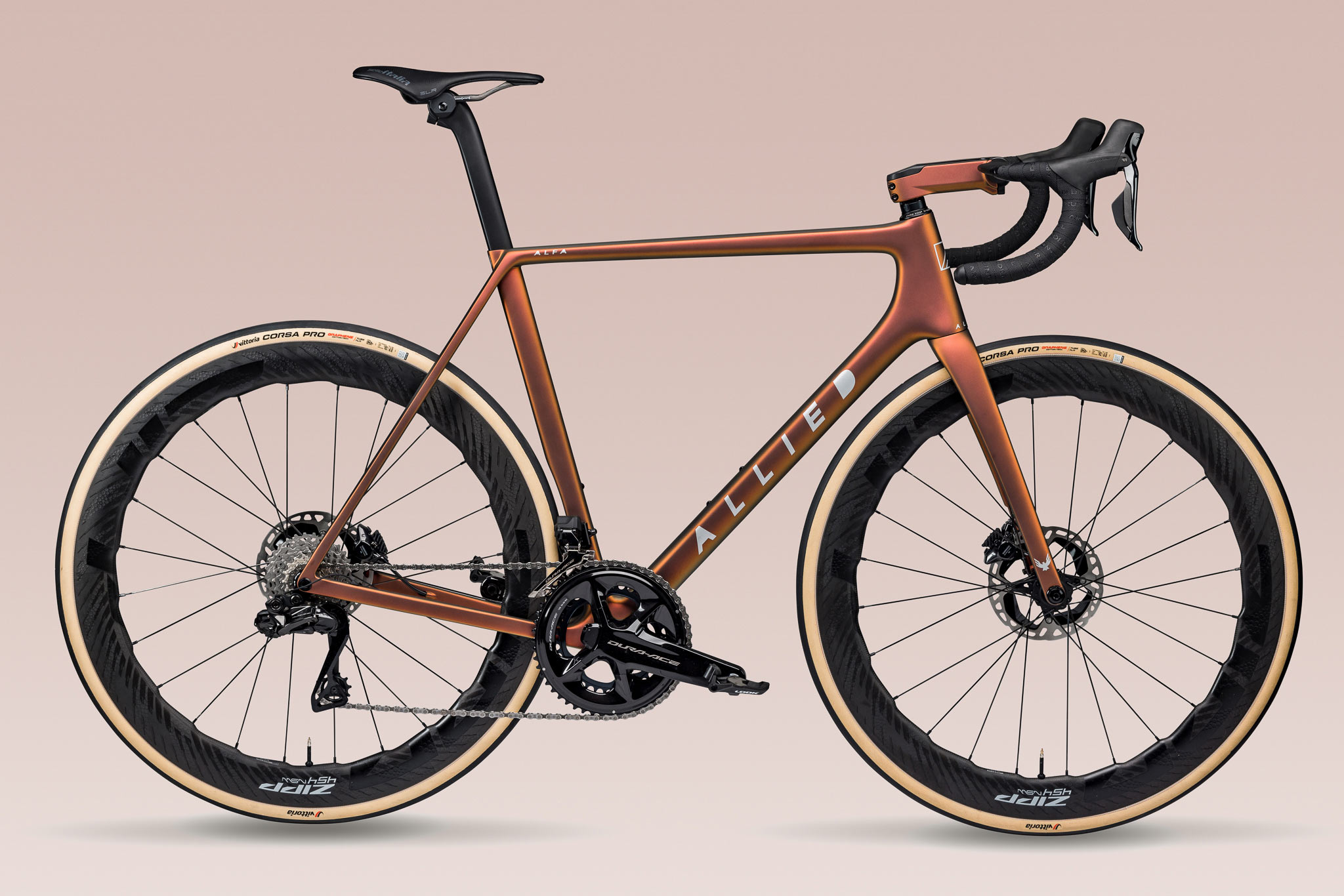
Framesets run $5,500, and complete bikes start at $8,225 and run over $14,000 before you start adding custom paint. It comes in six sizes (48 thru 61) and has a claimed frame weight of 820g (size 56) with a 320g fork.
